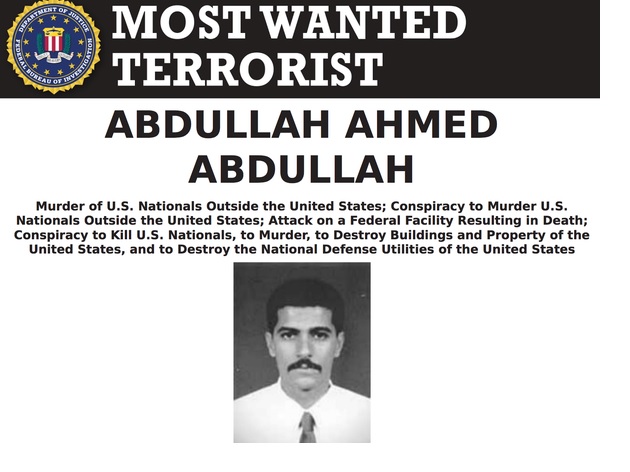WASHINGTON, (Reuters) – Al Qaeda’s second-in-command, accused of helping to mastermind the 1998 bombings of two U.S. embassies in Africa, was killed in Iran in August by Israeli operatives acting at the behest of the United States, the New York Times reported, citing intelligence officials.
Abdullah Ahmed Abdullah, who went by the nom de guerre Abu Muhammad al-Masri, was gunned down by two men on a motorcycle in the streets of Tehran on Aug. 7, the Times reported on Friday.
The killing of Masri, who was seen as a likely successor to al Qaeda’s current leader, Ayman al-Zawahiri, was kept secret until now, the newspaper said.
A senior Afghan security source told Reuters in October that Masri, who has long been on the U.S. Federal Bureau of Investigation’s Most Wanted Terrorists list, had been killed in the Pasdaran area of Tehran. Reuters had been unable to corroborate that information.
It was unclear what, if any, role the United States had in the killing of the Egyptian-born militant, the Times said. U.S. authorities had been tracking Masri and other al Qaeda operatives in Iran for years, it said.
Al Qaeda has not announced his death, Iranian officials have covered it up and no government has publicly claimed responsibility, the Times said.
Iran on Saturday denied the report, saying there were no al Qaeda “terrorists” on its soil.
Foreign Ministry spokesman Saeed Khatibzadeh said in a statement that the United States and Israel sometimes “try to tie Iran to such groups by lying and leaking false information to the media in order to avoid responsibility for the criminal activities of this group and other terrorist groups in the region”.
The administration of President Donald Trump’s “scare-mongering tactic against Iran has become routine,” Khatibzadeh said.
A U.S. official, speaking to Reuters on condition of anonymity, declined to confirm any details of the Times story or say whether there was any U.S. involvement. The White House National Security Council did not immediately respond to a request for comment.
The Israeli prime minister’s office said it was not commenting on the report.
Israel has said in the past that its intelligence services have penetrated Iran in recent years, including saying in 2018 that it had smuggled out an alleged archive of Iranian nuclear secrets.
Masri, one of al Qaeda’s founding leaders, was killed along with his daughter, the Times reported. She was the widow of former al Qaeda chief Osama bin Laden’s son.
Osama bin Laden orchestrated the Sept. 11, 2001, attacks on the United States and was killed in a U.S. raid in Pakistan in 2011.
Shi’ite Iran and al Qaeda, a Sunni Muslim militant organization, have long been enemies.
Masri had been in Iran’s “custody” since 2003 but had been living freely in an upscale suburb of Tehran since 2015, the Times cited unnamed U.S. intelligence officials as saying.
U.S. counterterrorism officials believe Iran, also a U.S. enemy, may have let him live there to conduct operations against U.S. targets, the Times said.
There was an unusual killing in Tehran on Aug. 7, the day Masri was reportedly killed, that was reported by Iranian state media at the time. State media said on Aug. 8 that a Lebanese man and his daughter had been killed in the northern Tehran neighbourhood of Pasdaran by unknown assailants on motorcycle.
They identified the man as Habib Dawoud, a 58-year-old history teacher, and his daughter Mariam, 27.
The semi-official Mehr news agency quoted a Tehran police source as saying the two were in a vehicle and were “shot four times from the driver’s side”.
The Iranian government did not confirm the incident at the time, although on Aug. 8 the official IRNA news agency reported that the public relations office of Tehran’s Provincial Government had tweeted the report quoting several media, including social media accounts.
It was not immediately known what, if any, impact Masri’s death has had on al Qaeda’s activities. Even as it has lost senior leaders in the nearly two decades since the attacks on New York and Washington, it has maintained active affiliates from the Middle East to Afghanistan to West Africa.
The report of al-Masri’s killing comes weeks after the killing of two other senior al Qaeda leaders in Afghanistan by local security forces.
In October, Afghan security forces killed Abu Muhsin al-Masri, another person on the FBI’s terrorist list, while the Afghan government this month announced that it had killed yet another senior al Qaeda commander.

